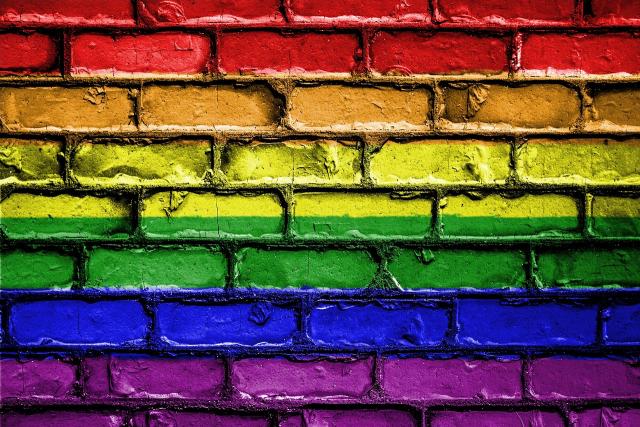The recent Global Refugee Forum advocates for more dedicated pathways and programs for at-risk LGBTQI+ people

By the numbers, there are more than 110 million displaced people in the world; it’s a global refugee crisis of unprecedented scale. Of those, it is unknown how many identify as 2-Spirit, lesbian, gay, bisexual, transgender, queer, intersex or asexual (2SLGBTQIA+). Further, a lack of data means we also don’t know how many seek asylum because of persecution on the basis of their sexual orientation or gender identity (SOGI). We do know that:
- Sixty-five countries around the world criminalize same-sex intimacy.
- Nine countries have national laws that criminalize forms of gender expression that target transgender and gender nonconforming people.
- Twelve countries have legalized the death penalty as a punishment for same-sex intimacy.
At-risk 2SLGBTQIA+ individuals are uniquely vulnerable because of state-sponsored homophobia and transphobia, and often face systemic barriers to accessing safety within the existing global refugee and asylum system.
Statement by LGBTQI+ and Allied Civil Society Organizations
Held every four years, the Global Refugee Forum is the world’s largest international gathering on refugees, and recently met in Geneva. The Forum recognizes the current urgency of the global crisis of LGBTQIA+ forced displacement because of homophobia, transphobia, discrimination, violence, and persecution.
The United Church of Canada was one of more than 75 organizations that signed a statement drafted by allied organizations. The statement calls on countries without punitive impacts for people who are LGTBQIA+ (allied countries) to create more dedicated pathways and programs to help LGBTQI+ people who are at risk of persecution, through funding for essential services and accessible resettlement pathways.
“. . . At-risk LGBTQI+ people often face systemic barriers to accessing safety within the existing global refugee and asylum system,” the statement says. “For LGBTQI+ individuals, drivers of displacement such as conflict, climate disaster and political instability bring pre-existing persecutory conditions sharply into focus.”
Despite growing international recognition of the pressing needs of 2SLGBTQIA+ forcibly displaced people, their voices continue to be excluded and deprioritized within mainstream humanitarian spaces. Noting the resilience, solidarity, and strength of the global LGBTQIA+ movement and its allies, the statement notes that allied countries must do more to hold persecuting countries to account, to address forced displacement.
Building sustained relationships with 2SLGBTQIA+ civil society and leveraging the expertise of 2SLGBTQIA+-led organizations, particularly refugee-led organizations, is key to accessing and identifying at-risk 2SLGBTQIA+ forcibly displaced persons in need of durable solutions.